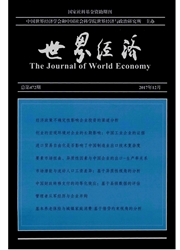

 中文摘要:
中文摘要:
人民币汇率升值会对国内企业产生不利的需求冲击,那么员工收入会在多大程度上受到影响呢?企业是否会通过降低员工收入来转嫁这种不利冲击呢?本文首先构造一个理论模型,分析汇率变动对员工收入的影响,发现汇率升值会通过进口竞争、出口收益和进口成本三种不同的渠道影响员工收入。然后,我们利用2000—2006年的中国工业企业数据库与海关数据库的匹配样本验证理论机制。研究表明,人民币汇率升值1%将会导致员工工资下降1%,其中,进口竞争效应导致下降0.6%,出口收益效应导致下降0.5%,进口成本效应造成上升0.1%。进一步的研究发现,收入的汇率弹性在不同类型的企业(生产率差异、所有制差异)之间存在显著差异,因此汇率调整还影响企业间的员工收入差距。
 英文摘要:
英文摘要:
In this paper we analyze the effect of exchange rate on wages.When domestic currency appreciates,firms can buffer the negative shock by reducing wage payment to employees.We first propose a theoretical model to show that exchange rate affect wages through three important channels,i.e.export revenue channel,import cost channel and import competition channel.We then use a Chinese firm-trade matched data to quantitatively investigate exchange rate effects,and find that a 1% appreciation of domestic currency will lower worker's wage by 1.16% on average.A series of robustness check support our conclusion.We also find that the effect of exchange rate on firms is heterogeneous.Firms with lower productivity and in the private and foreign-invested sectors are more likely to be affected by exchange rate movements.
 同期刊论文项目
同期刊论文项目
 同项目期刊论文
同项目期刊论文
 期刊信息
期刊信息
